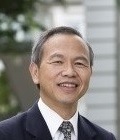Synopsis
This lecture examines current issues concerning the legal protection of databases and computer programs in Malaysia.
Although the term ‘database’ is not used in the Copyright Act 1987, it is accepted that the definition for “tables or compilations” as a form of ‘literary work’ is sufficiently wide to encompass electronic databases. The English approach, prior to the implementation of the European Database Directive, was to confer protection on the basis of “sweat of the brow” of the author. The Malaysian copyright law, being derived principally from English law, adopts the same approach. A recent amendment to the Act introduced the wordings of the WIPO Copyright Treaty and WTO’s TRIPS Agreement, which require a higher standard. Under the latter approach, selection or arrangement of the database content must constitute an intellectual creation. As a result, confusion arises due to the concurrent existence of both provisions.
Computer programs, defined to cover both the source codes and object codes, are specifically protected under the Copyright Act as a form of literary work. The rise of free and open source software (FOSS) licensing adds an additional dimension to the use of copyright law. The law is co-opted to promote free access to computer programs and their source codes. However, reported case law in Malaysia remain scarce on the issue of legality of non-monetary licensing terms in free and open source software licenses.
A recent decision in Alfa Laval appears to cast doubt as to the viability and effectiveness of confidential information protection to computer source codes. Although the ratio of the Alfa Laval decision appears to be in line with breach of confidence doctrine, it does not bode well with actual practices of the computer industry.
The Patents Act 1983 does not explicitly deny patent protection for computer software. Recent decisions in the United Kingdom are of highly persuasive value on the question of whether computer software is ineligible for patent protection for falling within the exceptions to patentability.
Speaker

Dennis Khong is an Associate Professor of law at Faculty of Law, Multimedia University, Malaysia. He was the founding dean of the faculty. Dr. Khong completed his Bachelor of Laws (Honours) at the University of Malaya, and his Doctor of Philosophy (Economics) at the University of Strathclyde, majoring on law and economics of copyright. His research interests span from intellectual property to technology law, contract law, and law and economics.
Chair

Kung-Chung LIU holds an LL.B. and LL.M. from National Taiwan University and a Doctorate from the Ludwig Maximilian Universitaet (University of Munich). He was a Research Fellow at Academia Sinica, Taiwan until 2017. In 2003, he was a Visiting Professor at the Faculty of Law of the National University of Singapore and a Visiting Senior Research Fellow for the IP Academy of Singapore. Professor Liu has served as one of the founding Commissioners of the National Communications Commission in Taiwan between 2006 and 2007. In 2014-15, he was a Visiting Professor at the School of Law, Singapore Management University, and the Founding Director of the Applied Research Centre for Intellectual Assets and the Law in Asia (ARCIALA). In addition, he has been co-appointed Professor at the Renmin University, China (2017), and the Graduate Institute of Technology, Innovation & Intellectual Property Management, National Chengchi University, Taiwan (since 2010).
Programme
2.30pm - Registration
3.00pm – Lecture by Dr. Khong
4.30pm – Comments by Professor Liu
4.45pm - Q & A
5.00pm - End of Event
Click here for the newsletter and registration link.
Last updated on 16 May 2018 .